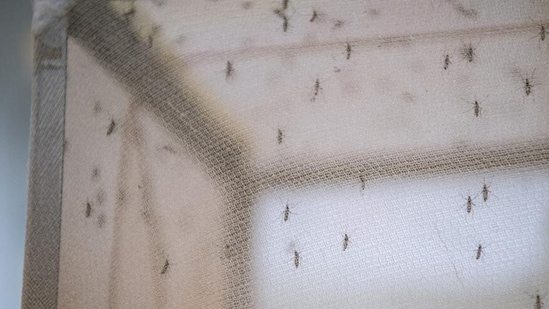Invasive mosquito linked to new malaria outbreaks in Africa
Researchers have linked an invasive mosquito to recent malaria outbreaks. The species thrives in urban areas and threatens to undo progress in eradicating the disease.
Ethiopian scientist Fitsum Tadesse presented research that suggests a malaria outbreak in the city of Dire Dawa was "strongly linked" the invasive Anopheles stephensi species of mosquito. The number of cases reported in the city jumped from 205 in 2019 to 2,400 in the first five months of 2022 — largely in the dry season. (Also read: Antibody treatment tested as a new tool against malaria: Research)

The species of mosquito is typically found around India and Iran. But in 2012, it was spotted in Djibouti and has now also been found in neighboring Ethiopia, Sudan, and Somalia, as well as in Nigeria.
What's different about this mosquito?
Native African mosquitoes typically prefer rural environments, whereas the invasive Anopheles stephensi can thrive in polluted cities.
This species can also breed in buckets and open water tanks, meaning that it can survive the dry season. This preference "makes it unique," Tadesse said.
When the mosquito was first detected in Djibouti in 2012, the country was close to eradicating malaria with just 27 reported cases that year. By 2020, there were 73,000 cases reported in the country.
Other African countries under threat
According to Thomas Churcher, a professor of infectious disease dynamics at Imperial College London who was not connected to the research, the invasive mosquito species could further spread malaria in Africa.
In 2020, 95% of the world's 627,000 malaria deaths were in Africa. A mosquito vector that is better adapted to large urban areas could make the situation worse.
"This new evidence is terrifying,'' Churcher told the Associated Press.
Some scientists are looking to India for potential solutions, such as introducing fish that feed on the mosquito larvae before they hatch, or banning containers with standing water.
"The evidence now exists to suggest that this is something that the world needs to act on," Sarah Zohdy, an Anopheles stephensi specialist at the US Centers for Disease Control and Prevention, told the AFP news agency.
Catch your daily dose of Fashion, Health, Festivals, Travel, Relationship, Recipe and all the other Latest Lifestyle News on Hindustan Times Website and APPs.



